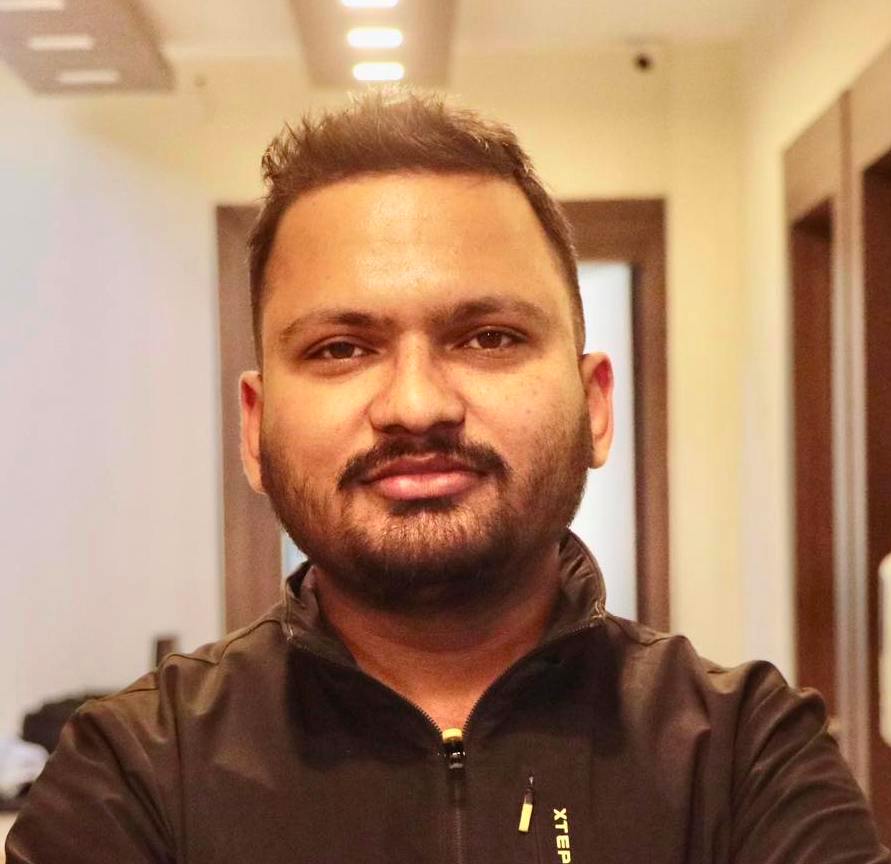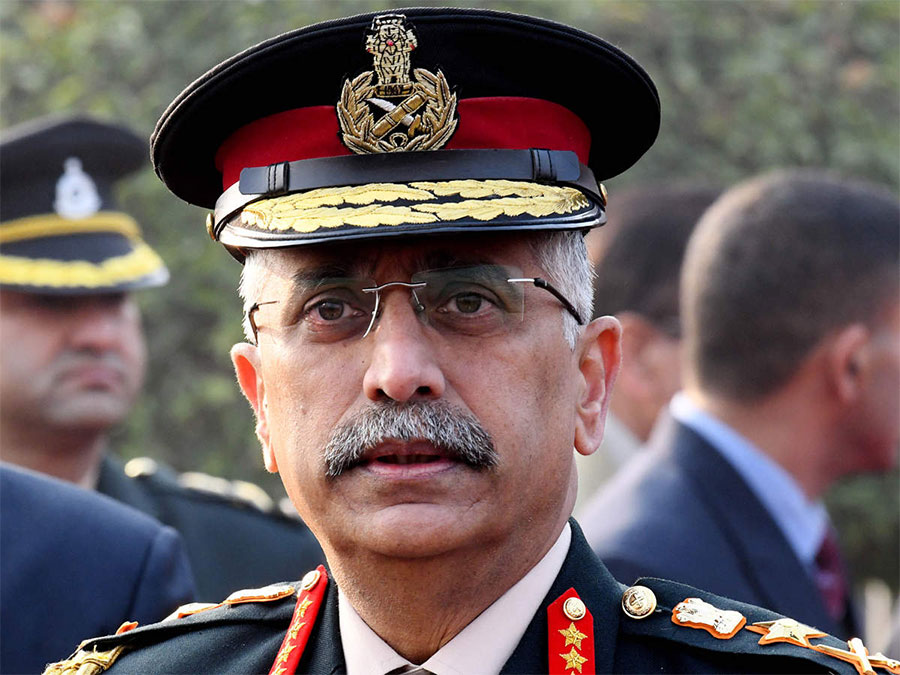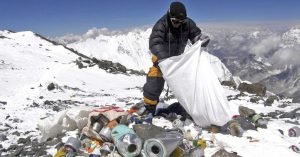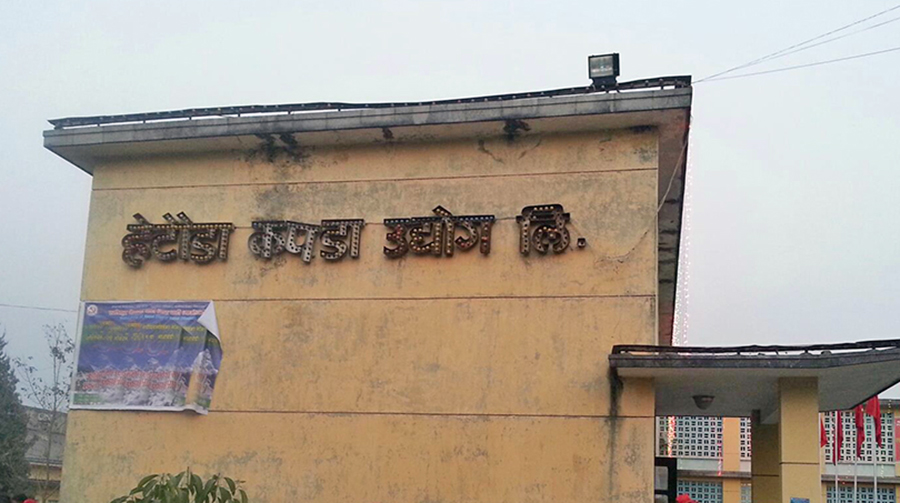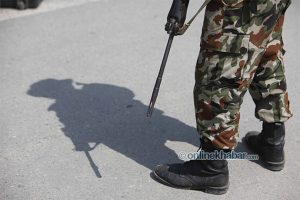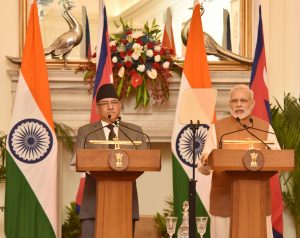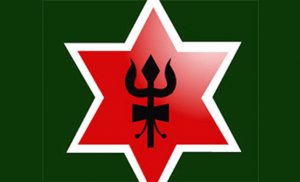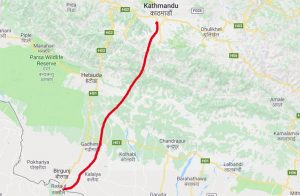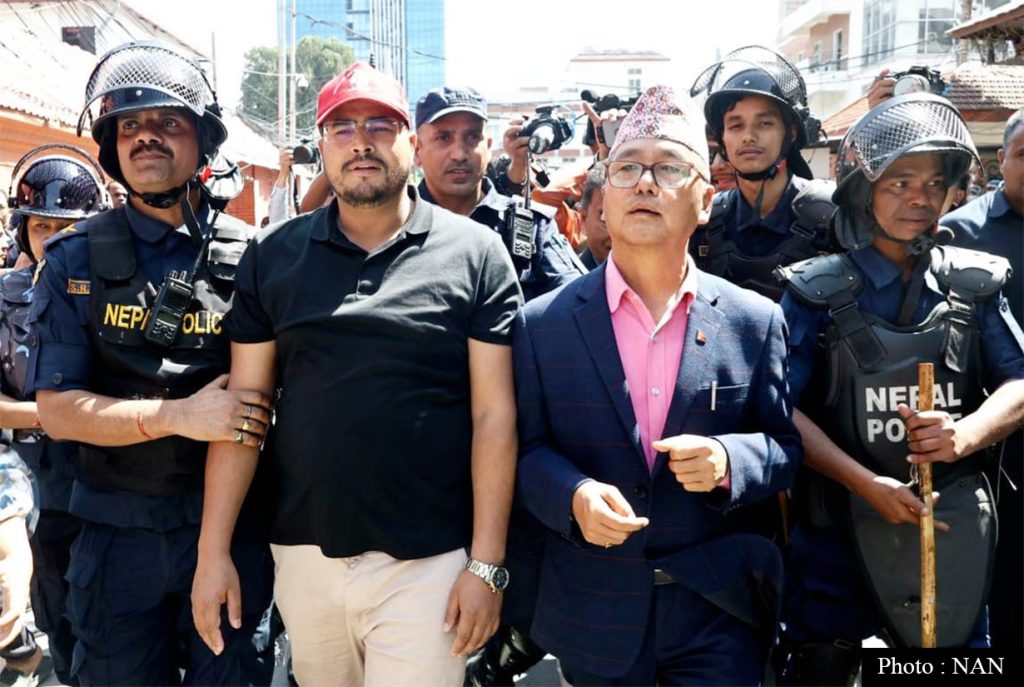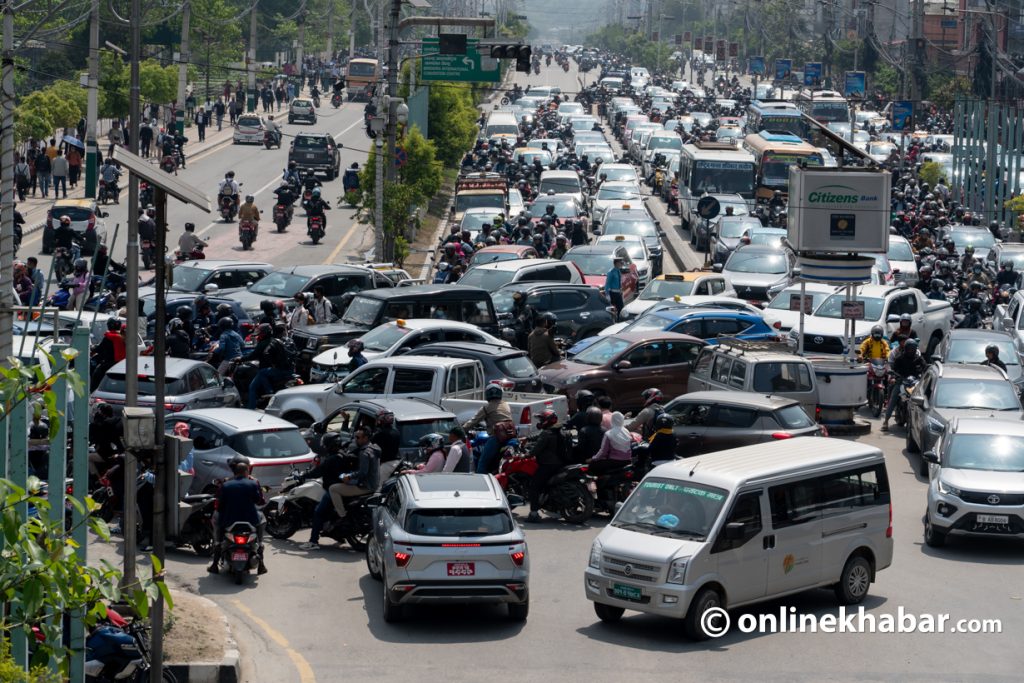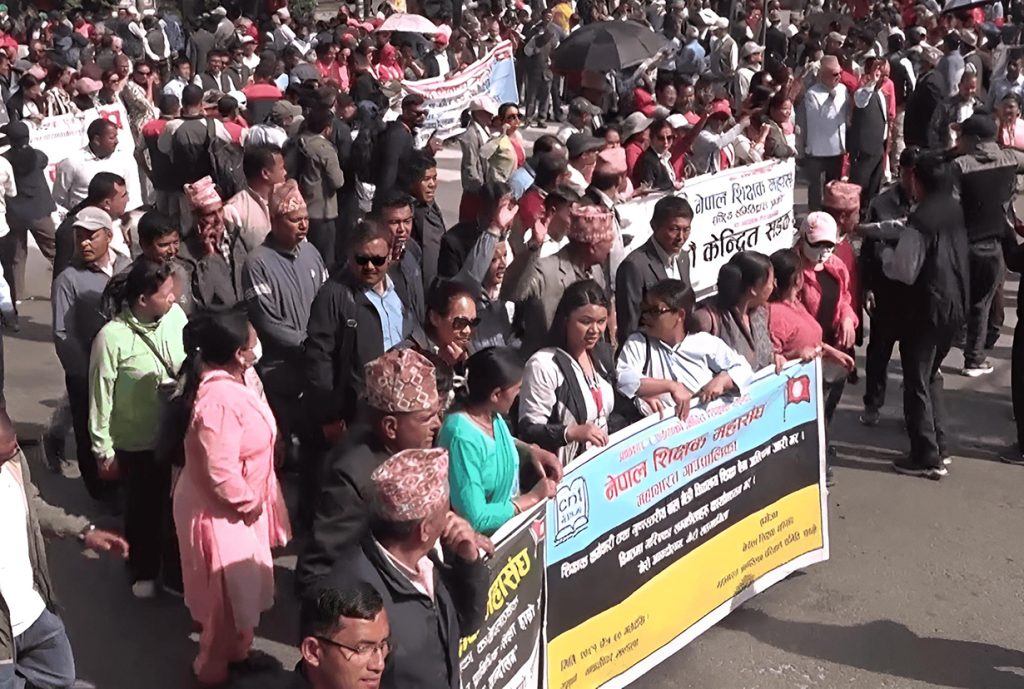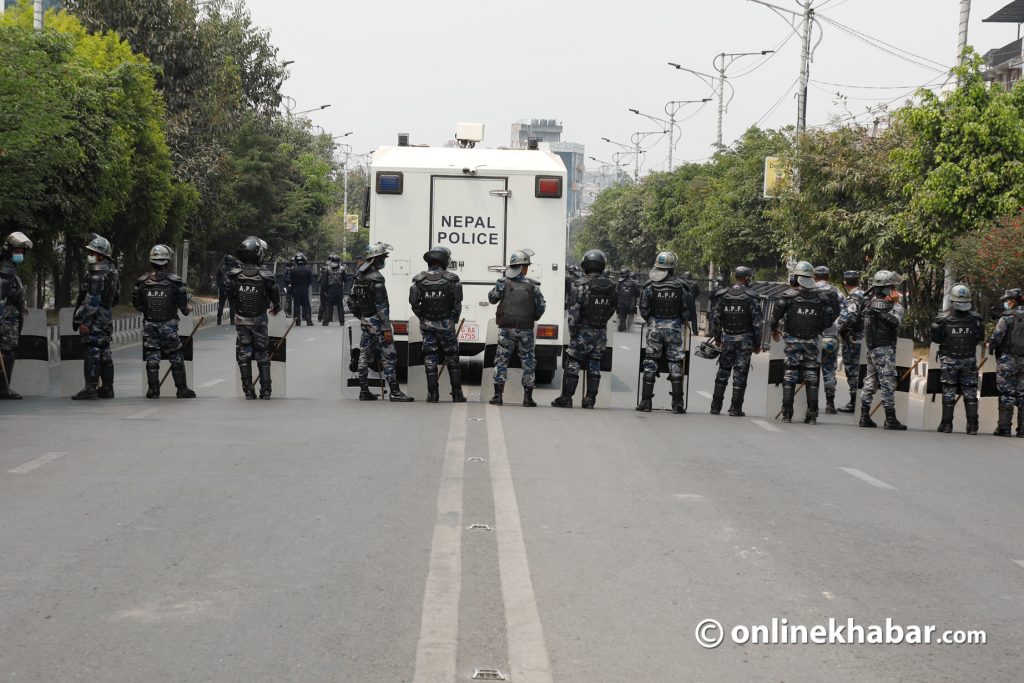Indian Army Chief Manoj Mukund Naravane is scheduled to visit Nepal in November at a time when the relation between the two countries has been strained for a year due to the border dispute.
The official is coming to Nepal to receive the honorary title of the Chief of Army Staff of the Nepal Army as per the decades-old tradition, existing between the two countries, of awarding the honorary title to army chiefs of each other.
The relationship between Nepal and India has deteriorated for some months due to the dispute about the ownership of the Kalapani-Limpiyadhura region. So, Naravane’s visit could be more ‘meaningful’ than the regular one.
It is also the first high-level visit from India since the border dispute between the two countries erupted in November last year. Apart from some formal telephone conversations between the P\prime ministers of the two countries and some regular meetings and activities of the Nepali Embassy in New Delhi and the Indian Embassy in Kathmandu, there has not been much dialogue between the two countries since then.
In this context, the army chief’s visit will be an important opportunity to know from a higher level what India is thinking about the border dispute, some high-level government officials and security experts in Nepal say.
Via Naravane, Nepal should be able to send a message to the political leadership of Delhi by keeping its clear views on the issue, they suggest. In their opinion, Naravane’s visit could play a vital role in creating an environment for talks between the two countries, including on the border issues.
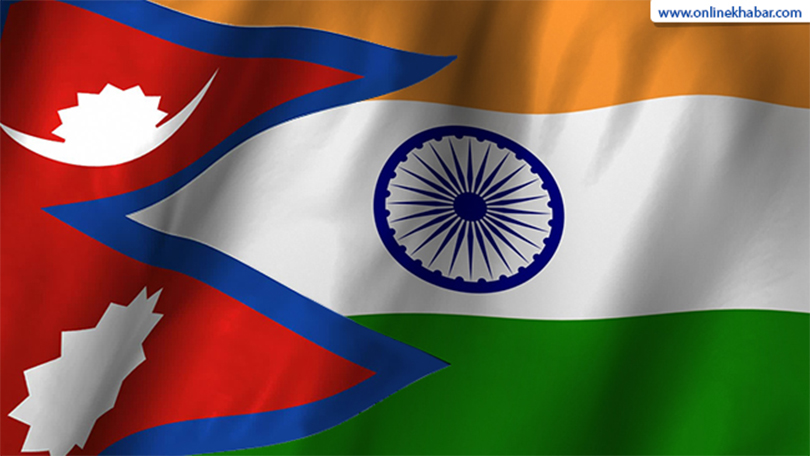
Former chief of army staff Rajendra Chhetri says the high-level visit initiated by the Indian army chief is a positive turn in the absence of communications between the two countries. “This could pave the way for resolving border disputes,” Chhetri tells Onlinekhabar.
Recently, an Indian diplomat had said that Nepal could help to create an atmosphere of trust by inviting the Indian Army Chief Naravane on a visit as soon as possible.
Retired major general of Nepal Army, Binoj Basnyat, says that military diplomacy between Nepal and India is different from other countries. “It should be understood that this visit is important on the national level. This will pave the way for further dialogues between the two countries,” he tells Onlinekhabar.
A retired Nepal Army lieutenant general says Naravane visit could be an effort to untie the knot of souring relations between the two countries. “It may be an attempt to improve the ties that had turned distant with a controversial statement of Naravane a few months back.” Nepal should clearly state its position and should send a clear message to New Delhi during the visit, according to him.
It is said that the military leadership of both countries can play a role in resolving the Kalapani dispute as they had played a significant role in lifting the undeclared blockade by India in 2015-16.
The Indian Army has given strategic importance to the Kalapani region. Therefore, analysts say that an understanding between the Nepal Army and the Indian Army could be important for resolving the border dispute.
Notably, Prime Minister KP Sharma Oli himself has taken over as the Defence Minister immediately after the official announcement of Indian Army’s Nepal visit.
Military contribution to blockade end

The armies of Nepal and India have a very close relationship. The role of the Nepal Army was seen important in ending the blockade imposed by India after the promulgation of the new constitution in 2015.
At a time when there was a lack of communications at the political and diplomatic levels between the two countries, the then Nepali Army Chief Rajendra Chhetri had a continuous dialogue with his Indian counterpart Dalbir Singh.
According to a military official close to Chhetri, the then army chief had discussed with his counterpart various security challenges facing the two countries and the implications for the two allies if the blockade was not lifted. According to sources, amid the prolonged non-communication, he had initiated discussions at the military level with the permission of the then Prime Minister KP Sharma Oli and Defence Minister Bhim Rawal.
In that informal dialogue, the then Indian army chief Singh, who was also a former commander of the Gurkha Rifles, had expressed dissatisfaction with the blockade. After that, Chhetri had sent a ‘secret team’ led by Himalaya Thapa, the chief of the warfare department then, to New Delhi as his envoy.
After the team’s discussion, Delhi had invited General Chhetri to visit India. During the visit, Chhetri met the then Indian Defence Minister Nirmala Sitharaman, Home Minister Rajnath Singh, National Security Advisor Ajit Doval, and others.
An official who had accompanied General Chhetri during his India trip says Sitharaman and Doval were not in favour of lifting the blockade. However, the then Indian army chief Singh himself convinced Prime Minister Modi to lift the blockade.
According to sources, Rajnath Singh, who is currently the defence minister, had telephone concerned Sashastra Seema Bal (SSB) officers during a meeting with the Nepali team and instructed them to clear the obstructions. After that, the way was opened for political dialogues between the two countries, and Prime Minister Oli was invited to visit India.
That ‘offensive’ statement

Chief of Army Staff Naravane is also a ‘suitable character’ from whom Nepal understands India’s position about the Nepal-India border dispute because he had made a controversial statement about the issue in May.
In a webinar hosted by Manohar Parrikar Institute for Defence Studies and Analyses (IDSA), Naravane had said that Lipulek had not been any problem in past, so the issue was raised by Nepal at someone else’s behest, hinting at China.
Terming the expression unnatural and offensive, many in Nepal had urged the Nepal Army to respond to it. However, CoAS Purna Chandra Thapa had said an appropriate response would be given at an appropriate time.
After the incident, the government had also instructed the Nepal Army not to proceed with the proposed Nepal visit of Indian Army Chief Naravane. However, with the formal announcement of the visit now, it can be stated that there is a possibility of inter-country dialogues, at the political level also.


